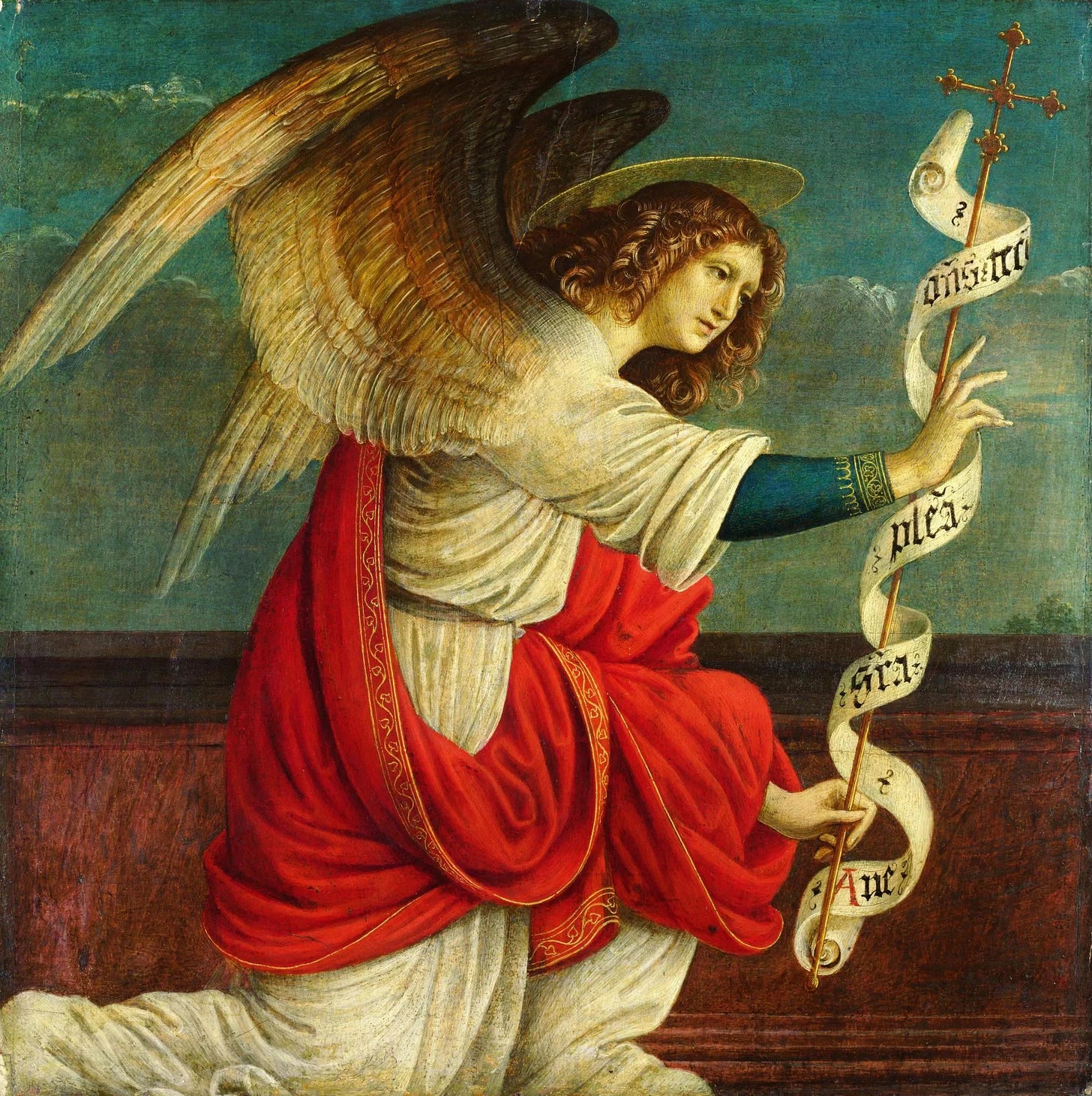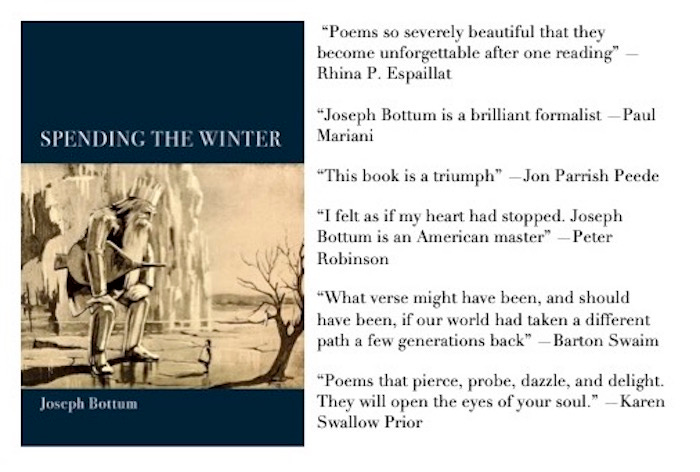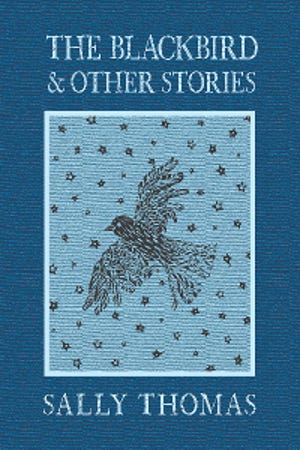
Abou Ben Adhem
by Leigh Hunt
Abou Ben Adhem (may his tribe increase!) Awoke one night from a deep dream of peace, And saw within the moonlight in his room, Making it rich and like a lily in bloom, An angel writing in a book of gold. Exceeding peace had made Ben Adhem bold; And to the presence in the room he said, “What writest thou?” The vision raised its head, And, with a look made of all sweet accord, Answered, “The names of those who love the Lord.” “And is mine one?” said Abou. “Nay, not so,” Replied the angel. Abou spoke more low, But cheerly still; and said, “I pray thee, then, Write me as one that loves his fellow-men.” The angel wrote, and vanished. The next night It came again, with a great wakening light, And showed the names whom love of God had blessed; And, lo! Ben Adhem’s name led all the rest. ═════════════════════════
Leigh Hunt (1784–1859) remains a resolutely minor figure. It’s true that the very first of our daily offerings here at Poems Ancient and Modern was by Hunt — his 1838 rondeau “Jenny Kiss’d Me,” a charming account of a visit to Thomas Carlyle’s house, when Jane Carlyle greeted him with a kiss. But he is little bothered with, these days, having mostly fallen out of anthologies and public memory.

Even in his own Victorian time, as we mentioned when we first discussed him, Hunt was thought a minor poet, minor essayist, minor public figure, minor intellectual — and yet a man minor at so many things that they added up to an outsized presence in his era. And his poem “Abou Ben Adhem” was once widely reprinted.
That was, I think, primarily for the neatness with it expressed a particular religiosity, rather than any deep thought. The Victorians were rapidly replacing metaphysics with ethics, at the center of Christianity — advancing the idea that religion is primarily a demand for good behavior rather than a description of the universe and an account of the economy of salvation from the forces of evil. And Hunt simply picked up the easy thought of his class and time, and gave it a statement in memorizable form.
Written in an album kept by the wife of one of Hunt’s acquaintances, the poem was first published with Hunt’s name in an 1834 printing of books intended to give as gifts by her husband, Samuel Carter Hall. The character of Abou Ben Adhem is almost certainly drawn from the Sufi mystic Ibrahim bin Adham, with Hunt’s version deriving from Barthélemy d’Herbelot’s 1697 Bibliothèque orientale, which introduced a version of the story to Europe.
Written, with Hunt’s typical competence, in pentameter couplets, the poem suggests that God loves those who love Him less than He loves those who love their fellow men — a centralizing of ethics that was typical of liberal Victorian thought. And the poem flows with an ease that makes the thought memorable and complete: The angel “showed the names whom love of God had blessed; / And, lo! Ben Adhem’s name led all the rest.”







This poem was one of the many in Arthur Mee’s Children’s Encyclopaedia that I treasured as a boy. I hadn’t thought about for decades - thank you for triggering the happy memories! The ethos of the CE, if it had one, was very much in tune with these sentiments
This has not worked well: "The replacement of metaphysics with ethics, at the center of Christianity" . . . either for poetry or as the foundation for human life.